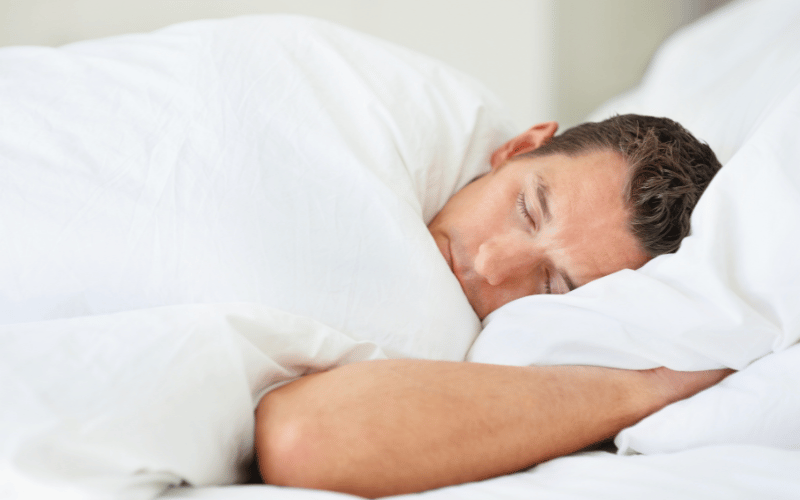Cause 2: Deep Sleep Patterns

Sleep is nature’s way of healing and rejuvenating our bodies. Deep sleep, in particular, is when the body gets down to some serious repair work. But there’s a downside. This depth of sleep, where one is cut off from most external stimuli, can be so profound that the bladder’s call for relief goes unnoticed, resulting in bedwetting.
It’s essential to grasp that this isn’t about laziness. The brain, during deep sleep, might not catch the signals from a bladder that’s crying out for relief. So, while the rest of the world might be easily roused by minor noises or disturbances, deep sleepers can remain blissfully unaware, even as their bladder reaches its limit.
Many misunderstand deep sleep bedwetting as a behavioral issue or a stubborn refusal to wake up. However, it’s crucial to separate the physiological response from any perceived intent. The deep sleeper isn’t “choosing” to wet the bed any more than someone chooses to snore.
Thanks to modern solutions, it’s not all gloomy for deep sleepers. Bedwetting alarms, for instance, are designed to rouse even the deepest sleeper at the first sign of moisture. Over time, these alarms can train the brain to respond to bladder signals, even in the depths of slumber.
Deep sleep is a gift for overall health and well-being. But for some, it comes with the challenge of nocturnal enuresis. With understanding, patience, and the right tools, however, bedwetting doesn’t have to overshadow the benefits of profound, restorative sleep. (2)